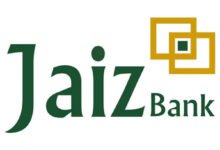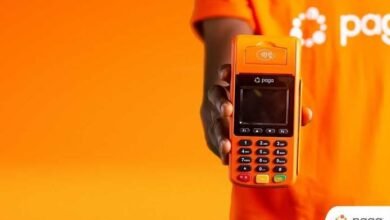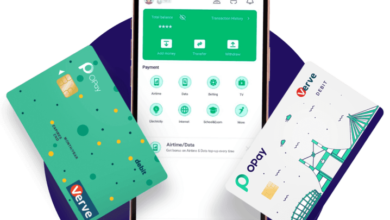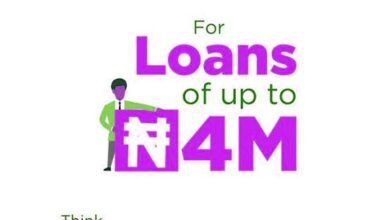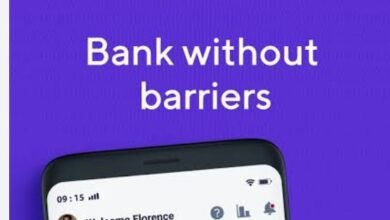List of Fake Loan Apps in Nigeria You Should Avoid in 2023
How to spot Fake Loan Apps in Nigeria
Obtaining a quick loan has become a norm in Nigeria today. This is because of the economic hardship faced by citizens and getting a quick loan from a loan app seems to be the fastest remedy to this situation. Sometimes because of our curiosity to get a loan, we fall into the wrong loan company.

It is not under the jurisdiction of the law for lenders to deceive, defame, and threaten loan defaulters. But in Nigeria, the worst is the case. Character defamation is constantly done to those who do not pay. Any loan application mentioned in this article should be avoided like a bad habit, in other to be safe in all your business.
Though matter how urgent you need the loan, please slow down and do proper research on the company. Read a lot of customers’ reviews across multiple download channels. This would give you a clue if the loan app is legit or not.
Several people have been cheated, misled, blackmailed, defamed, and illegally deducted their money from the bank by those fake loan apps. So you need to be careful out there.
Last December, some group of people devoted their time to investigating those fake loan companies that would show customers how to easily borrow money from their platform. If by any circumstances you are unable to pay the loan, you will be subjected to cyberbullying, public harassment, and breach of privacy.
Those Apps are not in the Play Store and Apple Store for download because of Google’s removal policy.
Top List of Fake Loan Apps in Nigeria 2023
Fake loan apps have become a major problem in Nigeria, with many unsuspecting victims falling prey to these scams. These apps promise quick and easy loans with low-interest rates, but in reality, they are just fronts for fraudsters looking to steal personal and financial information.
Here are the top list of fake loan apps in Nigeria to watch out for in 2023:
- CashNow Loan App: This app claims to offer fast and easy loans with no collateral required, but it is a scam designed to steal personal and financial information.
- QuickCash Loan App: This app promises to offer instant loans without any paperwork, but it is just a fake loan app created to deceive unsuspecting people into providing personal and financial information.
- PayDay Loan App: This app claims to offer payday loans on a quick and easy basis, but it is just a front for scammers seeking to rob you of your hard-earned money.
- CashMaga Loan App: This app promises to offer easy loans with low-interest rates, but it is just another fake loan app designed to dupe unsuspecting borrowers.
- Loan4U Loan App: This app claims to offer loans to anyone, regardless of their credit score, but it is just a front for fraudsters looking to steal your personal and financial information.
- CreditHub Loan App: This app promises to offer fast and convenient loans, but it is just another fake loan app created to scam unsuspecting borrowers.
- LoanJet Loan App: This app claims to offer instant loans without any collateral, but it is just a front for scammers seeking to steal your personal and financial information.
Others include: 9Credit, BorrowNow, Cash Mall, Cash Wallet, CashLion, Ease Cash, FastMoney, ForNaira, GGMoney, GoCash, GotCashger, GotoCash, KashKash, LCredit, LendCash, NairaPlus
To avoid falling prey to these fake loan apps in Nigeria, it is essential to do your research and only apply for loans from credible and trusted sources. Also, be wary of any app that promises quick and easy loans with low-interest rates, as this is often a red flag for fraud. Stay safe and protect yourself from these scams!
How to Spot Fake Loan Apps in Nigeria
In recent times, fake loan applications have become increasingly rampant in Nigeria. These fraudsters take advantage of the high demand for quick loans and offer fake loan apps that claim to provide fast access to credit facilities. Some people have fallen victim to these scammers and lost their hard-earned money.
It is essential to spot a fake loan app to protect yourself from such scams. In this article, we will discuss some of the ways to identify fraudulent loan apps in Nigeria.
- Research the Loan App
Before downloading a loan app, it is essential to research and gather background information about the app. You can search for reviews and articles related to the app to see if there are any negative reviews or complaints. You can also check if the app is listed on the Google Play Store or Apple Store and what the app’s ratings and reviews are.
Additionally, you can visit the website of the loan app to check for contact information, such as a physical address, phone number, and email. If the contact information is dubious or non-existent, this could be a sign of a fraudulent loan app.
- Check the Lender’s License
In Nigeria, all loan apps and lenders must be licensed and registered with the Central Bank of Nigeria (CBN). The license shows that the lender has met certain criteria and standards and is legally allowed to operate in Nigeria.
You can check if the loan app is licensed by visiting the CBN’s website and searching for its name on the list of licensed loan apps and lenders. If the loan app is not registered, it might be a fake loan app.
- Request for Personal Information
Legitimate loan apps will require the borrower to provide some personal information before processing their loans. However, the information requested should be limited to the borrower’s name, address, phone number, and bank account details.
If the loan app requires you to provide personal information beyond these details, such as your BVN, ATM card details, or passwords, this is a sign of a fake loan app. Scammers can use this information to fraudulently access your bank account and steal your money.
- Upfront Fees
Fraudulent loan apps can ask you to pay upfront fees before processing your loan. However, legitimate loan apps usually charge a processing fee or interest rate when the loan has been disbursed, not before.
If a loan app requests an upfront fee, it is likely a fake loan app. It would be best to avoid such apps and opt for loan apps that charge processing fees or interest rates upon disbursement.
- Guarantor Requirement
Legal loan apps in Nigeria do not mandate that borrowers provide guarantors before approving their loans. However, some fake loan apps require that the borrower provide a guarantor before approving their loan. This is a red flag that such apps are likely fraudulent.
- Check their Play Store reviews
The first step to determine if a loan app is fake or not is to check its reviews and ratings. A legitimate loan app will have many reviews from users who have received loans from the app. These users will share their experiences and give the app a rating based on how satisfied they were with the service. You should be wary of apps that have no reviews or have many negative reviews.
- Check the App Interest Rate
A legitimate loan app will disclose all fees and interest rates upfront. You should carefully review the app’s fees and interest rates before applying for a loan. A fake loan app may hide its fees and interest rates, making it difficult for you to understand how much you will be paying.
What to do when you are a victim of fake loan apps in Nigeria.
The proliferation of loan apps in Nigeria has been accompanied by the emergence of a growing number of fraudulent operators, who prey on unsuspecting borrowers. These fake loan apps often lure victims with promises of low interest rates, minimal documentation requirements, and fast disbursement of funds. Unfortunately, many borrowers fall for these scams and end up losing money, personal data, and in some cases, their entire identity. It is critical to educate yourself on how to protect yourself from these scams to avoid being a victim. Here are some steps to take if you’ve fallen victim to fake loan apps in Nigeria:
- Stop payments and report the scam: The first step is to stop any payments you are currently making to the fraudulent lender immediately. Next, file a complaint with the Consumer Protection Council (CPC) in Nigeria. They will be able to help you stop the lender from collecting any further payments and will also investigate the fraud.
- Freeze your accounts: You should also freeze your bank accounts if you suspect any unauthorized debits or transactions. This will ensure that funds are not withdrawn from your account without your knowledge or consent. You can do this by contacting your bank’s customer service or visiting a branch and requesting a freeze on your account.
- Change your passwords: It is also critical to change the passwords to all your online accounts, especially those linked to your financial or personal information. This will help prevent the scammers from accessing your information or making unauthorized transactions. You should also enable two-factor authentication to add an extra layer of security.
- Monitor your credit report: Keep an eye on your credit report to ensure that no unauthorized credit checks or loan applications have been made in your name. You can obtain a free credit report from the Credit Bureau Association of Nigeria (CBAN). If you notice any suspicious activity, report it immediately to the relevant authorities.
- Stay vigilant: One way to avoid falling victim to fake loan apps in the future is to stay vigilant. Do thorough research on any lender or loan app before borrowing from them. Read reviews online and speak with friends or family who may have used the lender or app before. Be wary of any lender or app that promises quick and easy loans with no credit checks or minimal documentation requirements.
FAQs on Fake Loan Apps in Nigeria
What are fake loan apps in Nigeria?
Fake loan apps are mobile applications posing as legitimate platforms for obtaining and disbursing loans but are fraudulent schemes aimed at luring unsuspecting borrowers into identity theft, financial scams, and other forms of fraudulent activities.
How can I identify a fake loan app in Nigeria?
Some signs that a loan app may be fake include demanding upfront fees, poor ratings, and customer reviews, and asking for personal and sensitive information such as bank account passwords.
What are the dangers of using fake loan apps in Nigeria?
The dangers of using fake loan apps include identity theft, loss of money, unauthorized access to bank accounts, high interest rates and fees, and damage to credit scores.
What should I do if I have been scammed by a fake loan app in Nigeria?
If you have been scammed by a fake loan app in Nigeria, you should immediately report the matter to the appropriate authorities, such as the Economic and Financial Crimes Commission (EFCC) or the Nigerian Police Force. You should also contact your bank to report the incident and prevent further access to your bank accounts.
How can I avoid falling victim to fake loan apps in Nigeria?
You can avoid falling victim to fake loan apps by conducting thorough research on the app before downloading and using it, reading reviews from other users, and avoiding apps that demand upfront fees or ask for personal information such as bank passwords. It is also advisable to obtain loans from reputable financial institutions such as banks and registered microfinance lenders.
Conclusion
There’s no denying the benefits of quick and easy loan schemes. Still, fake loan apps can put your finances at risk, so you must be vigilant when choosing a loan app. By following the guidelines discussed in this article, you can protect yourself from fake loan apps and make an informed decision when choosing a loan app. So, be smart and keep yourself protected from any financial woes.
